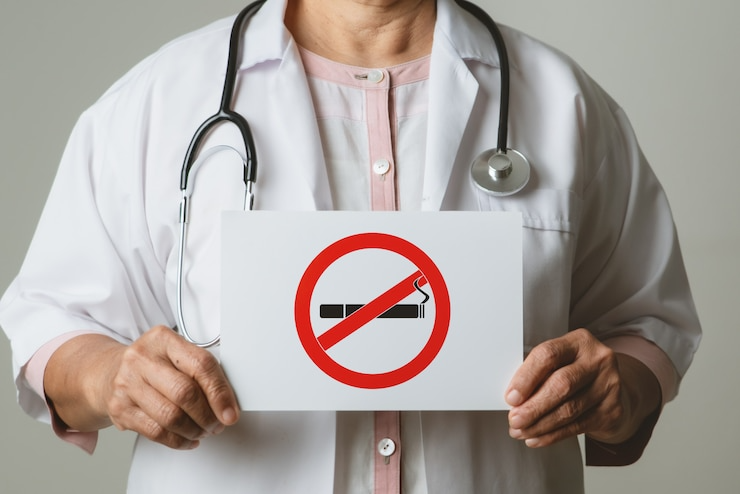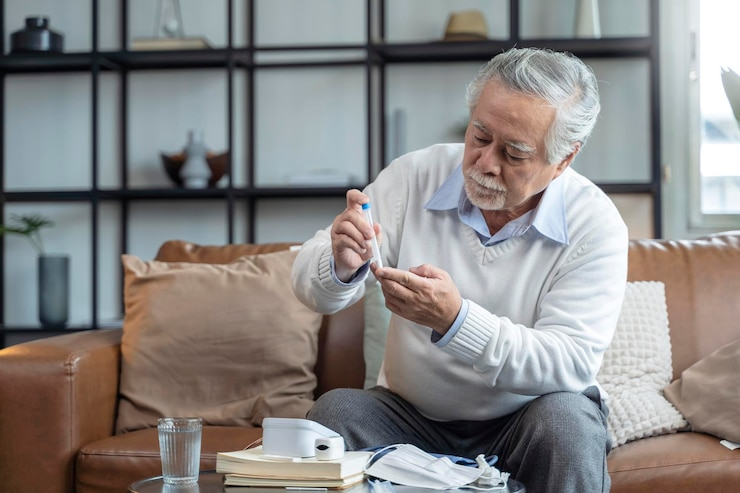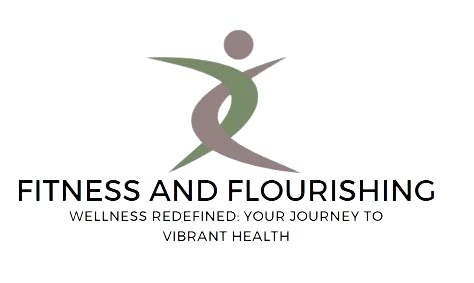In this busy life, we need more time to keep ourselves fit. Less moving and sitting all the time is making us obese. But to keep our bodies working, fit, and healthy, we must adopt a healthy lifestyle that keeps us firm forever. In this blog, we are going to learn some wholesome daily routines.
1. Get moving
Are you feeling sluggish? Want a mood boost? Get moving! Exercise is a powerful tool for both physical and mental well-being, and the good news is you don’t need to become a gym rat to reap the benefits.
According to the U.S. Department of Health and Human Services, 150 minutes of moderate-intensity exercise per week, or 75 minutes of vigorous activity, can significantly improve your health. That’s just 22 minutes a day of activities like brisk walking, dancing, or even household chores. As long as you’re moving, it counts!
Here’s how regular exercise can benefit you:
- Stronger heart: Exercise keeps your heart healthy, reducing your risk of cardiovascular disease.
- Sharper mind: Regular activity may improve brain function and reduce the risk of dementia.
- Elevated mood: Physical activity has been shown to lower the risk of depression and anxiety.
- Weight management: Exercise helps you burn more calories, making weight loss and maintenance easier.
- Improved strength: Staying active keeps your bones and muscles strong, aiding mobility as you age.
- Disease prevention: Regular exercise may help lower your risk of type 2 diabetes and certain cancers.
Remember, even small changes can make a big difference. So lace up your shoes, step outside, and move towards a healthier and happier you!

2. Eat more whole-food
Regarding your health, choosing whole foods is generally the better option. These unprocessed or minimally processed foods are packed with vitamins, minerals, and essential nutrients your body needs to function optimally. They tend to be lower in unhealthy ingredients like added sugars, unhealthy fats, and excessive sodium, commonly found in processed foods. Choosing whole foods over processed options can provide more energy, potentially reducing your risk of developing health problems in the long run.
Focusing on whole foods is crucial for maintaining good health. Diets high in processed foods often lack essential nutrients and contain unhealthy components like sugar, salt, and unhealthy fats. This imbalance can significantly increase your risk of various health issues, including weight gain, heart disease, diabetes, and certain cancers.

3. Quit smoking
Smoking is the leading cause of preventable death in the United States, significantly increasing your risk of heart disease, stroke, lung cancer, and other health problems. If you smoke, quitting is the most critical step you can take to improve your health and add years to your life. Talk to your doctor about creating a personalized quitting plan and explore available resources to help you break free from smoking for good.

4. Make sleep priority
Prioritize getting enough sleep, as it’s crucial for your body’s overall function. During sleep, your body repairs cells, restores energy, and your brain consolidates memories, eliminates waste, and strengthens neural connections. Adults typically need at least seven or more hours of sleep each night, but the exact amount can vary by age.
Insufficient sleep can negatively impact your health, increasing the risk of high blood pressure, heart disease, diabetes, and even certain cancers. To improve your sleep hygiene, create a relaxing bedtime routine, ensure your sleep environment is quiet, dark, and calm, and avoid screen time, caffeine, alcohol, and nicotine before bed. Consider natural sleep aids like melatonin or valerian root if needed, but always consult your doctor before starting new supplements.

5. Stay hydrated
Staying hydrated is essential for good health. Water plays a vital role in various bodily functions, including regulating temperature, aiding digestion, supporting organ function, and delivering nutrients to cells. Even mild dehydration can cause fatigue, difficulty concentrating, headaches, and mood swings.
The recommended daily water intake varies based on sex and several other factors. Women typically need around 9 cups of fluids daily, while men require closer to 13 cups. You may need to adjust your intake based on your activity level, climate, sun exposure, health conditions, and pregnancy or breastfeeding status.
Water should be your primary beverage choice. It’s calorie-free and hydrates effectively. To enhance the taste of plain water, try adding slices of lemon, lime, orange, cucumber, or even fresh herbs like mint or basil.

6. If you drink alcohol, do so responsibly
Excessive alcohol consumption can significantly harm your health, damaging your liver, brain, and heart and increasing the risk of various cancers and mental health issues. To avoid these negative consequences, it’s important to practice moderation. According to the U.S. Department of Health and Human Services, moderate drinking is defined as up to one standard drink per day for women and two for men. Remember, even occasional excessive drinking can be detrimental, so it’s crucial to be mindful of your alcohol intake.

If you are looking for the best supplements to keep your metabolism fit your search ends here;
7. Preventive care
Prioritizing preventive care is vital to staying healthy. By taking an active approach with your doctor, you can focus on preventing illness and catching potential problems early. Regular checkups often include measurements like blood pressure, blood tests for cholesterol and glucose, and screenings for various health concerns based on age, family history, and other factors. These checkups empower you and your doctor to address potential issues early when they’re often easier to manage, leading to better health outcomes.

8. Keep an eye on your numbers
Preventive care offers valuable insights into your overall health through key measurements like body mass index, blood pressure, cholesterol, and blood sugar. If these results fall outside the recommended range, your doctor can work with you to develop a personalized plan to address any concerns. Early detection of potential issues allows for proactive lifestyle changes and, if needed, medication to manage your health and prevent complications before they arise.


9. Manage stress
While stress is inevitable, chronic stress can negatively impact your mental, physical, and emotional health. It’s associated with an increased risk of high blood pressure, heart disease, depression, and a weakened immune system.
The good news is that you control how you react to stress. Our bodies naturally have a relaxation response that can counteract the stress response. Activities like deep breathing, progressive muscle relaxation, exercise, creative pursuits like music or art, yoga, tai chi, and meditation can all help trigger this relaxation response and reduce stress levels. Incorporating these practices into your routine can better manage stress and improve your overall well-being.

10. Keep your sex safe.
If you’re sexually active, regular screening for sexually transmitted infections (STIs) is crucial. Many STIs can go undetected for extended periods, increasing the risk of transmission and potential complications if left untreated. Early detection through regular testing allows prompt treatment and minimizes the risk of spreading infections to others.
Open communication with your partner(s) regarding sexual history and STI testing is essential for safe sex practices. Consider getting tested together before intimacy with new partners and discuss preferred barrier methods for added protection.
To further reduce the risk of HIV infection, you can explore pre-exposure prophylaxis (PrEP) medication or post-exposure prophylaxis (PEP) if necessary. Additionally, getting vaccinated against HPV, hepatitis A, and hepatitis B can offer protection against specific STIs.

11. Exercise
Here are some of the benefits of exercise, rephrased to avoid plagiarism from the source:
1. Physical Benefits:
- Improved cardiovascular health: Exercise strengthens your heart and lungs, boosting your endurance and reducing your risk of heart disease, stroke, and high blood pressure.
- Weight management: Regular physical activity helps you burn calories and maintain a healthy weight, reducing your risk of obesity and related health issues.
- Stronger muscles and bones: Exercise helps build and maintain muscle mass, improving strength, balance, and coordination. It can also increase bone density, reducing the risk of osteoporosis.
- Enhanced energy levels: Physical activity can boost your energy levels and combat fatigue, leaving you feeling more vibrant and energized throughout the day.
- Reduced risk of chronic diseases: Exercise can help lower your risk of developing type 2 diabetes, certain cancers, and Alzheimer’s.
2. Mental and Emotional Benefits:
- Improved mood and reduced stress: Exercise releases endorphins, natural mood enhancers promoting happiness and well-being. It can also be a healthy way to manage stress and anxiety.
- Sharper mind and better sleep: Physical activity can improve cognitive function, memory, and focus. It can also contribute to better sleep quality, leaving you feeling more rested and refreshed.
- Increased self-confidence and self-esteem: Regular exercise can boost your confidence and self-esteem by helping you achieve personal fitness goals and improve your overall well-being.
Incorporating regular exercise into your routine is a powerful way to improve your physical and mental health, leading to a happier, healthier you.




There is definately a lot to find out about this subject. I like all the points you made
I like the efforts you have put in this, regards for all the great content.
Very well presented. Every quote was awesome and thanks for sharing the content. Keep sharing and keep motivating others.
This was beautiful Admin. Thank you for your reflections.
This is really interesting, You’re a very skilled blogger. I’ve joined your feed and look forward to seeking more of your magnificent post. Also, I’ve shared your site in my social networks!
Good post! We will be linking to this particularly great post on our site. Keep up the great writing
I just like the helpful information you provide in your articles